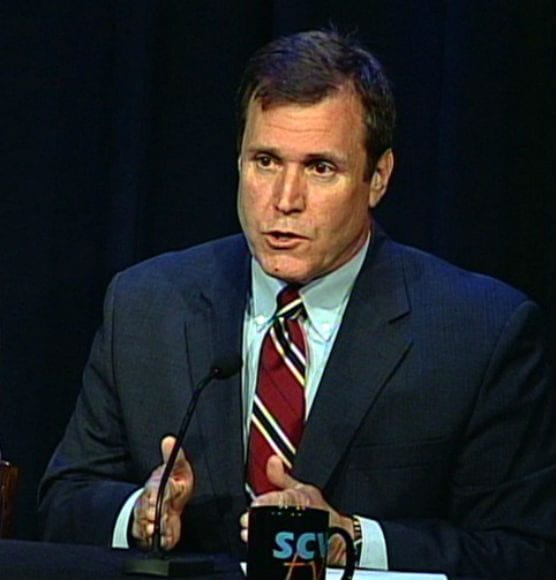In his first order of business in the 2019-20 legislative session, Senator Scott Wilk, R-Santa Clarita, introduced Senate Bill 53 (SB 53), legislation that will strengthen transparency in state agencies and stop agencies like the California High-Speed Rail Authority from taking advantage of a loophole that allows them to hold closed-door meetings without public involvement.
“The scathing audit of the High-Speed Rail Authority last month underscores how far off track an agency can go when there is not appropriate transparency,” Wilk said. “Transparency equals accountability and in the case of the bullet train, the lack of transparency has cost the taxpayers billions of dollars. This has to stop.”
Senate Bill 53 clarifies existing law and defines a “state body” as any multimember committee. Current law requires all standing committees of a local government entity or of the Legislature to hold meetings that are open to the public whether or not the standing committee takes action.
However, existing law is slightly ambiguous for state bodies, which some state agencies are exploiting as a loophole by limiting their standing committees to no more than two members for the explicit purpose of avoiding open meeting requirements and public scrutiny.
Wilk introduced the same legislation twice in the Assembly. Both bills sailed through the Legislature, only to be vetoed by Governor Jerry Brown.
“We have a new governor coming into office in January,” Wilk said. “It is my hope Governor Newsom will be supportive of requiring our government to conduct its business in a visible and transparent manner. The Legislature unanimously passed both of my previous bills and I expect it will be supportive of ensuring the public be included in meetings that directly affect them.”
The California High-Speed Rail Authority, First 5 California, and the California Veterinary Medical Board, among others, have misused this hazy language in the Bagley-Keene Act to circumvent open meeting requirements. These agencies limit their standing committees to no more than two members for the explicit purpose of avoiding open meeting requirements.

Like this:
Like Loading...
Related





 Tweet This
Tweet This Facebook
Facebook Digg This
Digg This Bookmark
Bookmark Stumble
Stumble RSS
RSS



























REAL NAMES ONLY: All posters must use their real individual or business name. This applies equally to Twitter account holders who use a nickname.
0 Comments
You can be the first one to leave a comment.